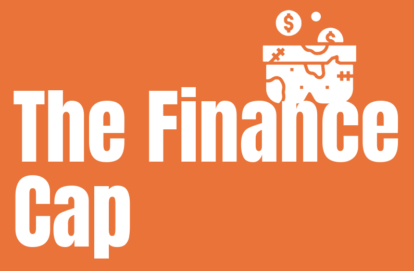Can You Buy a Car with a Credit Card? Everything You Need to Know
Buying a car is one of the biggest financial decisions most people make, and the usual method involves cash, financing, or leasing. But what if you could swipe your credit card and drive off in a new set of wheels? The idea might seem appealing, especially if you have a high-limit credit card or want to take advantage of rewards and 0% APR financing. However, there are several factors to consider before making this move.
In this guide, we’ll explore whether you can buy a car with a credit card, the benefits and risks, and the top 0% APR credit cards that could help you make a smart financial decision.

Can You Buy a Car with a Credit Card?
Dealer Policies on Credit Card Payments
While it is technically possible to buy a car with a credit card, not all dealerships allow it. Many car dealers prefer traditional payment methods like cash, checks, and auto loans due to the high processing fees (typically 2-3%) associated with credit card transactions. However, some dealerships may allow you to use a credit card for a portion of the payment, such as a down payment, while requiring the rest to be financed or paid in cash.
Credit Card Limits and Restrictions
Even if a dealer allows credit card payments, you may run into another obstacle: your credit limit. Most credit cards have limits far below the cost of a new car, meaning you might not be able to charge the full amount. However, if you have a high-limit credit card or multiple cards with substantial limits, you might be able to split the transaction.
Using Third-Party Payment Services
If a dealer does not accept credit card payments, you might be able to use third-party payment processors like PayPal, Plastiq, or Square. These services charge a fee (usually around 2.5%-3%) but can allow you to use your credit card for a car purchase indirectly.
Pros and Cons of Buying a Car with a Credit Card
Pros
- Earn Rewards and Cash Back – If you have a rewards credit card that offers cash back or travel points, making a large purchase like a car could net you significant rewards.
- Take Advantage of 0% APR Promotions – Some credit cards offer 0% APR on purchases for a limited time, allowing you to finance the car without interest.
- Convenience and Security – Credit card transactions come with fraud protection, which can be beneficial when making a large purchase.
- Build Your Credit – Making timely payments on a high purchase can boost your credit score by improving your payment history and credit mix.
Cons
- High-Interest Rates After Intro Period – If you don’t pay off the balance before the 0% APR period ends, you could face interest rates of 15%-30%.
- Dealer Fees – Many dealerships pass the credit card processing fee onto the buyer, increasing the cost of the car.
- Credit Utilization Impact – Charging a large purchase can increase your credit utilization, which may temporarily lower your credit score.
- Possible Credit Card Restrictions – Some issuers may not allow large transactions or may require pre-approval for a big purchase like a car.
Potential Impact on Your Credit Score
Using a credit card to buy a car can have a significant impact on your credit score, both positively and negatively. Here’s how:
- Credit Utilization Increase – Your credit utilization ratio (the amount of credit used compared to your credit limit) can spike if you charge a large purchase like a car. High utilization can temporarily lower your credit score, so it’s essential to pay off the balance quickly.
- Payment History Boost – If you make on-time payments, your credit score can improve over time as payment history is the most crucial factor in credit scoring.
- New Credit Inquiry – If you apply for a new credit card to finance the car, a hard inquiry will be added to your credit report, which can slightly lower your score.
- Credit Mix Diversification – Using a credit card for part of your car purchase can add variety to your credit profile, which may benefit your score in the long run.
- Long-Term Debt Risk – If you don’t pay off the balance before the 0% APR period ends, you could face high-interest charges that make the car significantly more expensive and impact your ability to manage other financial obligations.
Other Payment Options to Consider When Buying a Car
If using a credit card isn’t the best option for your situation, consider these alternative payment methods:
- Auto Loans – One of the most common ways to finance a car purchase is through an auto loan. Banks, credit unions, and online lenders offer competitive interest rates, especially if you have a good credit score.
- Personal Loans – If you don’t qualify for an auto loan or want a different financing option, personal loans can be used to purchase a vehicle. However, interest rates are often higher than auto loans.
- Dealer Financing – Many dealerships offer their own financing options, sometimes with promotional interest rates for well-qualified buyers. Be sure to compare rates with other lenders to get the best deal.
- Leasing – If you prefer lower monthly payments and like upgrading cars frequently, leasing might be a good alternative. Keep in mind that you won’t own the car at the end of the lease term unless you opt for a buyout.
- Cash Payment – If you have enough savings, paying for a car in cash can help you avoid interest charges and debt. Some dealerships may even offer a discount for cash payments.
- Home Equity Loan or Line of Credit (HELOC) – If you own a home, you might be able to use a home equity loan or line of credit to finance your car purchase. This option usually comes with lower interest rates but carries the risk of using your home as collateral, and should be used as a last resort.
Before choosing any payment method, compare interest rates, fees, and terms to determine which option best fits your financial situation.
Best 0% APR Credit Cards for Buying a Car
- Wells Fargo Reflect® Card
- 0% APR Period: 21 months on purchases and qualifying balance transfers.
- Regular APR: 17.24%-28.99% variable after the intro period.
- Annual Fee: $0.
- Best For: Longest 0% APR period, allowing extended time to pay off the balance.
- Chase Freedom Unlimited®
- 0% APR Period: 15 months on purchases and balance transfers.
- Regular APR: 19.49%-28.24% variable after the intro period.
- Annual Fee: $0.
- Best For: Cash back rewards, earning up to 5% on purchases in select categories.
- Citi Simplicity® Card
- 0% APR Period: 12 months on purchases, 21 months on balance transfers.
- Regular APR: 18.24%-28.99% variable after the intro period.
- Annual Fee: $0.
- Best For: No late fees or penalty APR, making it a good choice for flexible payments.
Smart Strategies for Using a Credit Card to Buy a Car
If you decide to use a credit card for all or part of your car purchase, here are some best practices:
- Check with the Dealership First – Confirm their policies on credit card payments and any associated fees.
- Use a 0% APR Credit Card – This allows you to finance the car interest-free for the introductory period.
- Pay Off the Balance Before the Intro Period Ends – Avoid high interest charges by making aggressive payments before the regular APR kicks in.
- Consider Combining a Credit Card with an Auto Loan – Use a credit card for the down payment while financing the rest through an auto loan with a low interest rate.
- Monitor Your Credit Score – A high credit utilization ratio can temporarily lower your score, so plan to pay down the balance quickly.
Final Thoughts On Buying a Car With a Credit Card
So, can you buy a car with a credit card? The answer is yes, but with some limitations. Not all dealerships accept credit card payments for full vehicle purchases, and those that do may charge additional fees. However, if used strategically, a 0% APR credit card can be a valuable tool to finance part of your car purchase while earning rewards and avoiding interest for an extended period.
When making such a large financial decision, it’s essential to weigh the pros and cons carefully. A credit card can offer benefits such as rewards and fraud protection, but the risks of high interest and potential dealer fees should not be overlooked. Understanding your credit limit, knowing how it affects your credit score, and planning your repayment strategy can make all the difference in ensuring you don’t take on unnecessary debt.
At the end of the day, buying a car is a significant investment, and the payment method you choose can impact your financial health in the long run. If you decide to use a credit card, ensure that you have a plan to pay off the balance before interest kicks in and that you stay within your financial means.
Would you consider buying a car with a credit card? Have you ever used an unconventional method to finance a vehicle? Let us know in the comments below!
